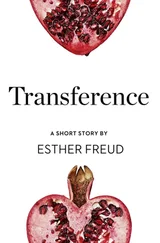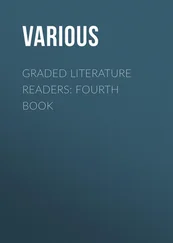Various - Fourth Reader
Здесь есть возможность читать онлайн «Various - Fourth Reader» — ознакомительный отрывок электронной книги совершенно бесплатно, а после прочтения отрывка купить полную версию. В некоторых случаях можно слушать аудио, скачать через торрент в формате fb2 и присутствует краткое содержание. Жанр: foreign_prose, на английском языке. Описание произведения, (предисловие) а так же отзывы посетителей доступны на портале библиотеки ЛибКат.
- Название:Fourth Reader
- Автор:
- Жанр:
- Год:неизвестен
- ISBN:нет данных
- Рейтинг книги:5 / 5. Голосов: 1
-
Избранное:Добавить в избранное
- Отзывы:
-
Ваша оценка:
- 100
- 1
- 2
- 3
- 4
- 5
Fourth Reader: краткое содержание, описание и аннотация
Предлагаем к чтению аннотацию, описание, краткое содержание или предисловие (зависит от того, что написал сам автор книги «Fourth Reader»). Если вы не нашли необходимую информацию о книге — напишите в комментариях, мы постараемся отыскать её.
Fourth Reader — читать онлайн ознакомительный отрывок
Ниже представлен текст книги, разбитый по страницам. Система сохранения места последней прочитанной страницы, позволяет с удобством читать онлайн бесплатно книгу «Fourth Reader», без необходимости каждый раз заново искать на чём Вы остановились. Поставьте закладку, и сможете в любой момент перейти на страницу, на которой закончили чтение.
Интервал:
Закладка:
I breathed a song into the air,
It fell to earth, I knew not where;
For who has sight so keen and strong,
That it can follow the flight of song?
Long, long afterwards, in an oak,
I found the arrow, still unbroke;
And the song, from beginning to end,
I found again in the heart of a friend.
Fear to do base, unworthy things, is valor!
I never thought an angry person valiant;
Virtue is never aided by a vice.
THE BATTLE OF THE ANTS
One day when I went out to my woodpile, or rather my pile of stumps, I observed two large ants, the one red, the other much larger, nearly half an inch long, and black, fiercely contending with one another. Having once got hold, they never let go, but struggled and wrestled and rolled on the chips incessantly. Looking farther, I was surprised to find that the chips were covered with such combatants; that it was a war between two races of ants, the red always pitted against the black, and frequently two red ones to one black.
The legions of these warriors covered all the hills and vales in my wood-yard, and the ground was already strewn with the dead and dying, both red and black. It was the only battle which I have ever witnessed, the only battlefield I ever trod while the battle was raging; internecine war: the red republicans on the one hand, and the black imperialists on the other. On every side they were engaged in deadly combat, yet without any noise that I could hear, and human soldiers never fought so resolutely.
I watched a couple that were fast locked in each other’s embraces, in a little sunny valley amid the chips, now at noonday prepared to fight till the sun went down, or life went out. The smaller red champion had fastened himself like a vise to his adversary’s front, and through all the tumblings on that field, never for an instant ceased to gnaw at one of his feelers near the root, having already caused the other to go by the board; while the stronger black one dashed him from side to side, and, as I saw on looking nearer, had already divested him of several of his members.
In the meanwhile there came along a single red ant, evidently full of excitement, who either had despatched his foe, or had not yet taken part in the battle. He saw this unequal combat from afar, – for the blacks were nearly twice the size of the red; – he drew near with rapid pace till he stood on his guard within half an inch of the combatants; then, watching his opportunity, he sprang upon the black warrior, and commenced his operations near the root of his right fore-leg, leaving the foe to select among his own members. So there were three united for life, as if a new kind of attraction had been invented which put all other locks and cements to shame.
I took up the chip on which the three were struggling, carried it into my house, and placed it under a tumbler on my window-sill, in order to see the issue. Holding a microscope to the first-mentioned red ant, I saw that, though he was assiduously gnawing at the near fore-leg of his enemy, having severed his remaining feeler, his own breast was all torn away, exposing what vitals he had there to the jaws of the black warrior, whose breastplate was too thick for him to pierce; and the dark carbuncles of the sufferer’s eyes shone with ferocity such as only war could excite.
They struggled half an hour longer under the tumbler, and when I looked again, the black soldier had severed the heads of his foes from their bodies, and the still living heads were hanging on either side of him like ghastly trophies at his saddle-bow, still apparently as firmly fastened as ever, and he was endeavoring with feeble struggles, being without feelers and with only the remnant of a leg, and I know not how many other wounds, to divest himself of them; which at length, after an hour more, he accomplished. I raised the glass, and he went off over the window-sill in that crippled state. Whether he finally survived that combat, I do not know; but I thought that his industry would not be worth much thereafter. I never learned which party was victorious, nor the cause of the war; but I felt for the rest of that day as if I had had my feelings excited and harrowed by witnessing the struggle, the ferocity, and carnage of a human battle before my door. – Henry David Thoreau.
Oh, many a shaft at random sent,
Finds mark the archer little meant!
And many a word at random spoken,
May soothe, or wound, a heart that’s broken.
THE CURATE AND THE MULBERRY TREE
Did you hear of the curate who mounted his mare?
And merrily trotted along to the fair?
Of creature more tractable none ever heard;
In the height of her speed she would stop at a word;
But again, with a word, when the curate said “Hey!”
She put forth her mettle and galloped away.
As near to the gates of the city he rode,
While the sun of September all brilliantly glowed,
The good man discovered, with eyes of desire,
A mulberry tree in a hedge of wild-brier;
On boughs long and lofty, in many a green shoot,
Hung, large, black, and glossy, the beautiful fruit.
The curate was hungry and thirsty to boot;
He shrunk from the thorns, though he longed for the fruit;
With a word he arrested his courser’s keen speed,
And he stood up erect on the back of his steed;
On the saddle he stood while the creature stood still,
And he gathered the fruit till he took his good fill.
“Sure never,” he thought, “was a creature so rare,
So docile, so true, as my excellent mare:
Lo, here now I stand,” and he gazed all around,
“As safe and as steady as if on the ground;
Yet how had it been if some traveller this way
Had, dreaming no mischief, but chanced to cry ‘Hey’?”
He stood with his head in the mulberry tree,
And he spoke out aloud in his fond reverie;
At the sound of the word the good mare made a push,
And the curate went down in the wild-brier bush.
He remembered too late, on his thorny green bed,
Much that well may be thought cannot wisely be said.
MIRIAM’S SONG
Sound the loud timbrel o’er Egypt’s dark sea!
Jehovah has triumphed, – His people are free!
Sing, – for the pride of the tyrant is broken,
His chariots, his horsemen, all splendid and brave, —
How vain was their boasting! the Lord hath but spoken,
And chariots and horsemen are sunk in the wave.
Sound the loud timbrel o’er Egypt’s dark sea!
Jehovah has triumphed, – His people are free!
Praise to the Conqueror, praise to the Lord!
His word was our arrow, His breath was our sword.
Who shall return to tell Egypt the story
Of those she sent forth in the hour of her pride?
For the Lord has looked out from His pillar of glory,
And all her brave thousands are dashed in the tide.
Sound the loud timbrel o’er Egypt’s dark sea!
Jehovah has triumphed, – His people are free!
THE MEETING OF THE WATERS
There is not in the wide world a valley so sweet,
As that vale, in whose bosom the bright waters meet;
Oh! the last rays of feeling and life must depart,
Ere the bloom of that valley shall fade from my heart.
Yet it was not that Nature had shed o’er the scene
Her purest of crystals and brightest of green;
’Twas not her soft magic of streamlet or rill,
Oh! no – it was something more exquisite still.
Интервал:
Закладка:
Похожие книги на «Fourth Reader»
Представляем Вашему вниманию похожие книги на «Fourth Reader» списком для выбора. Мы отобрали схожую по названию и смыслу литературу в надежде предоставить читателям больше вариантов отыскать новые, интересные, ещё непрочитанные произведения.
Обсуждение, отзывы о книге «Fourth Reader» и просто собственные мнения читателей. Оставьте ваши комментарии, напишите, что Вы думаете о произведении, его смысле или главных героях. Укажите что конкретно понравилось, а что нет, и почему Вы так считаете.




![Various Various - Selected List of Nimmo, Hay, & Mitchell's Publications [1890]](/books/571841/various-various-selected-list-of-nimmo-hay-mit-thumb.webp)






